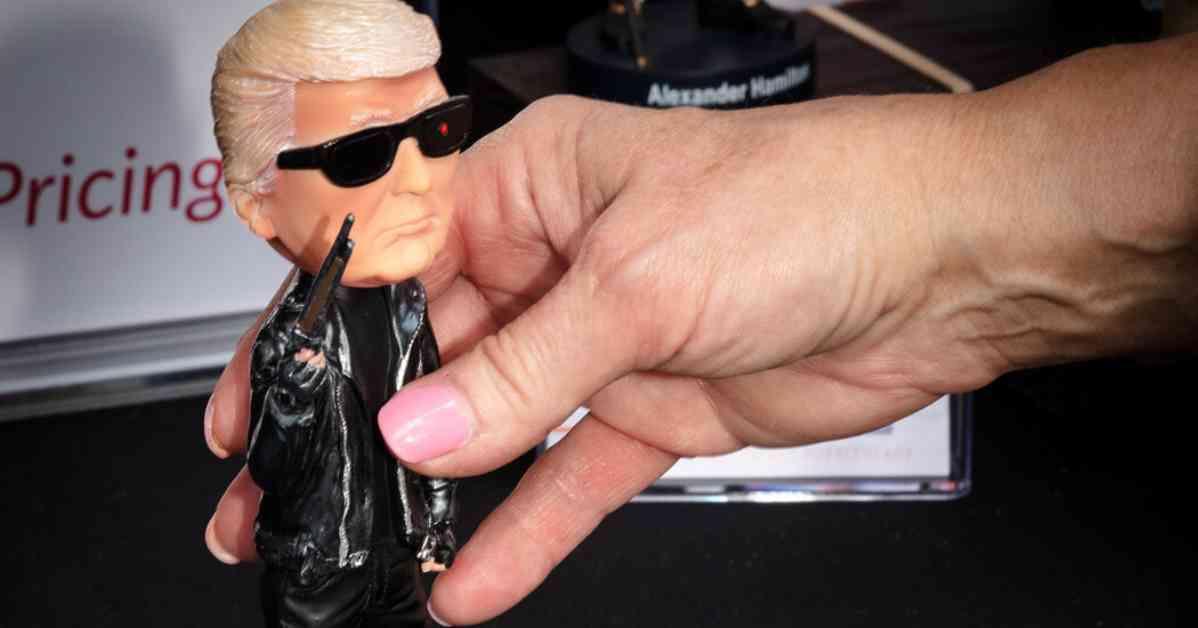Unpacking the Label of ‘Weird’ for Trump and Vance
In the world of politics, labels can be powerful tools used to shape public perception and sway opinions. From “dangerous Donald” to a threat to the “soul of America,” politicians have always sought to define their opponents in ways that resonate with voters. In the current political landscape, the term “weird” has emerged as a new descriptor for figures like former President Donald Trump and JD Vance. But what does it really mean to be labeled as “weird” in the context of American politics?
The shift from portraying Trump as a danger to America to labeling him as “weird” represents a strategic pivot in the Democrats’ messaging strategy. While the previous narratives focused on the perceived threat posed by Trump and his supporters, the new characterization seeks to highlight their perceived eccentricity and deviation from the mainstream. This shift is not just about semantics; it reflects a broader attempt to paint Trump and Vance as out of touch with the average American.
The Impact of Being Labeled as ‘Weird’
Despite its seemingly benign connotations, the label of “weird” carries significant implications in the realm of politics. By branding Trump and Vance as “weird,” Democrats are seeking to undermine their credibility and legitimacy in the eyes of the public. The term suggests that their beliefs and actions are so far outside the norm that they are unworthy of serious consideration.
Moreover, being labeled as “weird” can have a demoralizing effect on politicians and their supporters. It implies that they are not just wrong or misguided, but fundamentally strange and abnormal. This can make it difficult for them to connect with voters and build support for their agenda.
Unpacking the Accusations of ‘Weirdness’
But what exactly is it that makes Trump and Vance “weird” in the eyes of their opponents? The accusations of weirdness seem to stem from their embrace of controversial and polarizing positions on issues such as election denialism, book banning, abortion bans, and the targeting of transgender individuals. These stances are seen as extreme and out of step with the values and priorities of the majority of Americans.
For example, Trump’s continued insistence on spreading false claims about the 2020 election results has been widely criticized as both dangerous and bizarre. Similarly, Vance’s vocal support for policies that restrict access to books and infringe on reproductive rights has raised eyebrows and drawn condemnation from across the political spectrum.
The Political Ramifications of the ‘Weird’ Label
The impact of being labeled as “weird” goes beyond mere rhetoric; it has real political consequences. In a country as deeply divided as the United States, perceptions matter, and labels can shape the course of elections and public policy debates.
For Trump and Vance, being branded as “weird” could hinder their ability to attract moderate and independent voters who are turned off by extreme or fringe positions. It could also galvanize opposition from within their own party, as more mainstream Republicans seek to distance themselves from the perceived weirdness of their colleagues.
In the long term, the label of “weird” could erode the credibility and influence of Trump and Vance within the political landscape. If they are seen as too out of touch with mainstream values, they may struggle to build coalitions and effectively advance their policy priorities.
In conclusion, the shift towards labeling Trump and Vance as “weird” represents a calculated effort by Democrats to delegitimize their opponents and marginalize their influence. While the term may seem innocuous on the surface, its implications are far-reaching and could shape the future of American politics for years to come.














